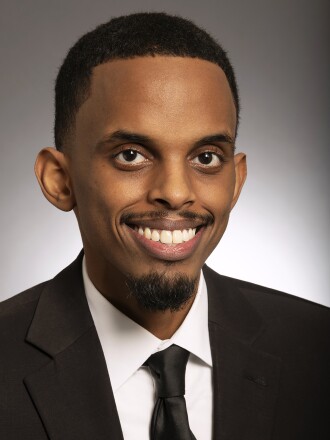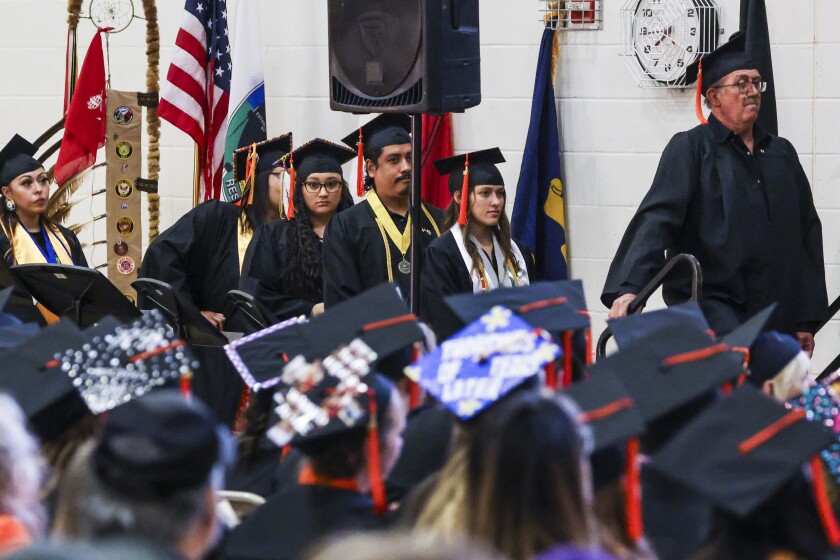ST. PAUL — A proposal being considered by the Minnesota Legislature would provide a free college education for students attending state colleges and universities at the cost of around $315 million per year.
More than 58,000 students would be eligible for college grants under by Sen. Omar Fateh, DFL-Minneapolis. The free college grant program would cover the full cost of tuition and fees at state colleges for low- and middle-income students attending public and tribal institutions.
ADVERTISEMENT

Democratic-Farmer-Labor lawmakers say free tuition will help turn around declining enrollment, address racial disparities in higher education, and build a skilled workforce.
Minnesota public higher education has seen a 23% drop in enrollment since 2013, Senate DFLers said, and institutions could face significant budget troubles in coming years if the trend continues. Tuition has also become more expensive.
"Our public institutions are not truly a public good if they are not accessible to all," Fateh told members of the Senate Higher Education Committee on Tuesday, adding that the rise of education costs has coincided with declining state funding and rising costs of living.
Minnesota used to cover about two-thirds of the higher education expenses at state institutions, but now it covers less than half, he said.
"I've heard countless stories from students who are struggling with student debt and struggling with their academic careers," Fateh said at a Capitol news conference announcing the bill. "And also, we have received countless emails from faculty members, from administrators talking about the issues of budget cuts."
Fateh said his bill and companion legislation in the House would cover tuition grants for students with a family gross-adjusted income of $120,000 or less starting in 2024. More than half of the grants would be awarded to students with family incomes of less than $40,000. Students with a Pell Grant — federal aid for students with significant financial need — would get matching state funding.
The free tuition bill got its first hearing in the Senate Higher Education Committee on Tuesday, where nearly two dozen students, faculty and others testified in favor. John Runningen, president of , an organization representing 100,000 community college students, said free tuition would have a great benefit for smaller communities across the state.
ADVERTISEMENT
"A free college program would benefit greater Minnesota students because it will keep students in our local communities so that we can get the skills needed to be a teacher (or) plumber," said Runningen, who attends M-State Fergus Falls, where he is president of the school's student government association. "They won't be closing campuses here in the Twin Cities — it'll be campuses in Pipestone, Ely and Detroit Lakes."
State higher education officials have raised the alarm about declining enrollment's effect on school budgets, warning that campuses may have to lay off employees or shutter altogether if current trends continue. Senate Democrats described the situation as a crisis.
While the statewide decline at state colleges and universities has been around 23% over the past decade, some schools have seen bigger losses. The University of Minnesota Morris saw a 45% drop in enrollment and St. Cloud State University saw its rate drop by 34%.
A private-public partnership providing free tuition at Pine Technical and Community College in east-central Minnesota raised enrollment by 45%, which Democrats referenced as they promoted their bill.
At Tuesday's hearing, Sen. Jason Rarick, R-Brook Park, raised concerns that higher tuition assistance rates could lead to increased education costs. He also questioned whether the free tuition program would end up supplanting existing programs, such as the public-private partnership at Pine Technical, located in his district.
Gov. Tim Walz's budget proposal for higher education did not include the program. Fateh told reporters earlier this week that the bill's backers have discussed the bill with the governor.
On a voice vote, the Senate Higher Education Committee passed the bill along to the finance committee.
ADVERTISEMENT
Follow Alex Derosier on Twitter or email aderosier@forumcomm.com .


























